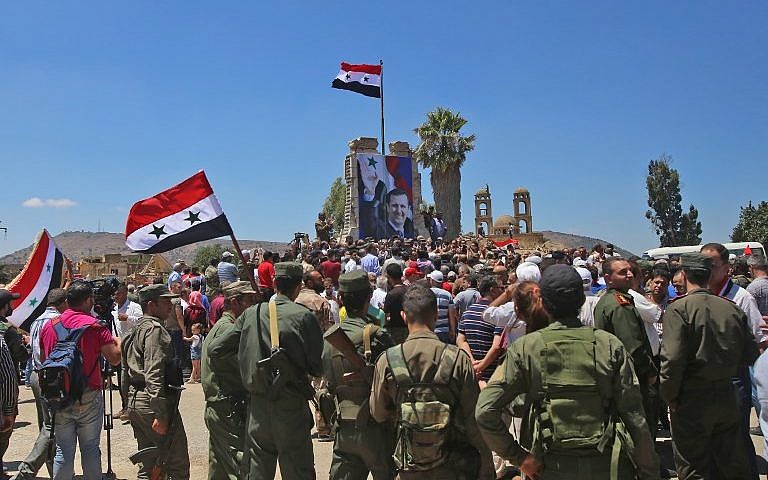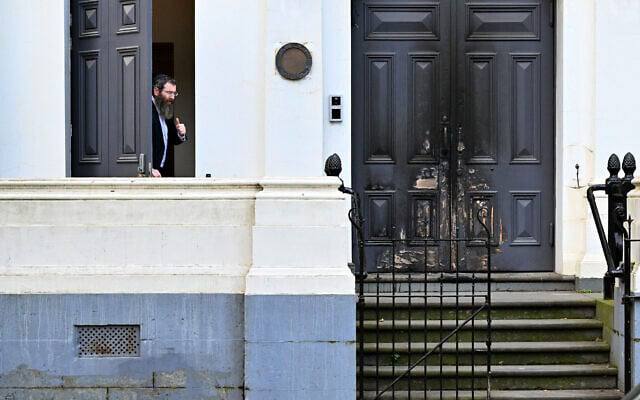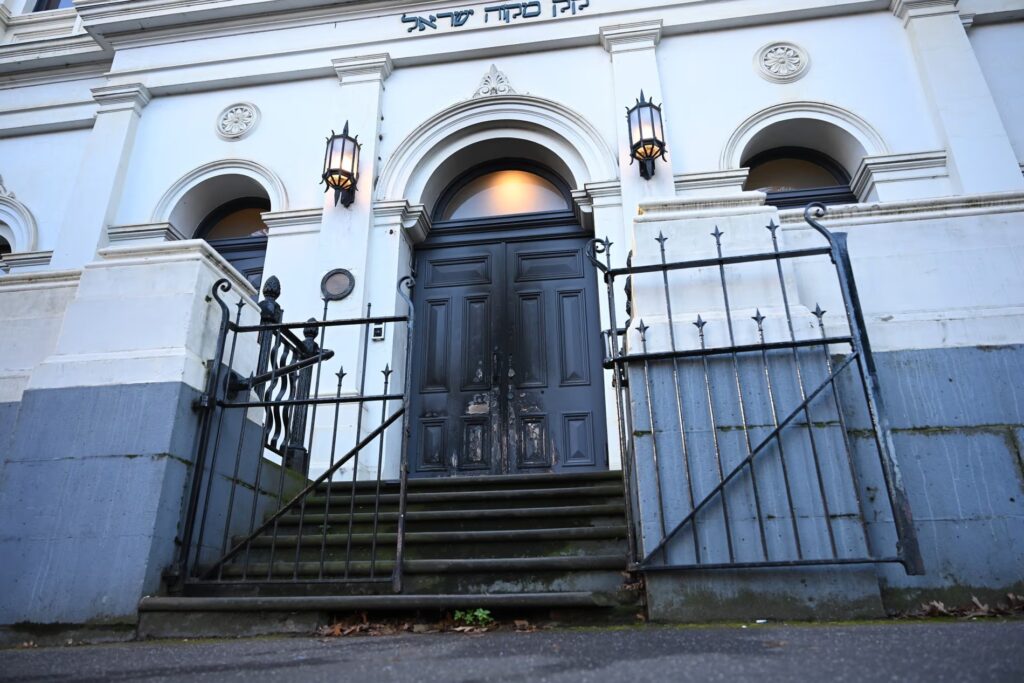UPDATES
Syrian regime retakes Israel’s Golan border
August 3, 2018 | AIJAC staff

Update from AIJAC
Update 08/18 #02
Last week, Syrian regime forces retook full control of Syria’s Golan Heights border with Israel, after that border was largely controlled by anti-regime forces for several years. This development is significant because Israel’s key policy goal for Syria at the moment is to prevent the establishment of a permanent presence in Syria of Iranian or Iranian proxy military forces and bases directed at Israel – in part through agreements with Russia – especially near the Golan border. Recent events bring these pressures to a head – and this Update looks at the implications.
We lead with the views on this development of top Israeli journalist and Arab affairs writer Ehud Yaari (who is a frequent visitor to Australia and is expected here later this year). He argues that the return of the Assad regime to the border creates a very risky situation for Israel, making the case that Israel should have done more in the past to prevent this happening. He argues that efforts to distance Iranian and proxy forces from the border under a deal with the Russians are not that helpful because the Assad regime’s military is today essentially an assortment of militias, many of which are Iranian affiliates. For Yaari’s sometimes controversial but always well informed views in full, CLICK HERE.
Next up is some reporting about Israel’s efforts to try to protect Syrian residents along the border – with a request to Russia for help in policing regime forces – from a piece in the Times of Israel. The piece also offers some description of Israel’s past humanitarian aid efforts to Syrians near the Golan border (but for more see Naomi Levin’s piece in the latest AIR.) For all the details, CLICK HERE.
Finally, former Israeli National Security Advisor Major General (res.) Yaakov Amidror reviews the Israeli approach to the Syrian civil war since 2011, and how it has evolved up to the present day. He notes that Israel’s initial decision was to stay out of the conflict. However, efforts by Iran to use the cover of the war to vastly upgrade the arms being supplied to Hezbollah pushed Israel to take action against such transfers. He then reviews how changing circumstances over recent years have forced Israel to expand the focus of its concerns from weapons transfer to a broad policy of trying to prevent the building of an extensive Iranian military structure within Syria, leading to the present situation where, with the regime’s successes along the Golan border, Israel is confronted with trying to prevent Iran setting up right on its doorstep. For this important summary of the Israel view from one of Israel’s top strategic thinkers, CLICK HERE.
Readers may also be interested in…
- Russia claimed last week it had reached a deal with Israel to keep Iranian forces 85 kilometres from the Golan border, and now claims this agreement has been implemented.
- Israel killed 7 alleged Islamic State fighters trying to cross the Golan border from Syria into Israel yesterday.
- Israeli expert Dr. Eyal Zisser on why Assad has won the Syrian civil war.
- Reacting to the release of jailed Palestinian teen Ahed Tamimi, convicted of slapping a soldier and incitement, Arnold Roth, an Australian Israeli whose daughter was murdered in a terror attack planned by Tamimi’s cousin, discusses the weaponisation of Palestinian children.
- More on Tamimi’s release here and here.
- A former Kuwaiti Minister says some very sensible things about settling the Israeli-Palestinian conflict.
- Video of Isi Leibler’s latest interview on PJTN TV.
- Some examples from the many stories and comments now appearing at AIJAC’s daily “Fresh AIR” blog:
- AIJAC National Chairman Mark Leibler on what Gaza’s Hamas rulers are actually seeking, in Monday’s Australian.
- AIJAC’s Colin Rubenstein on “Myths and Facts about Israel’s controversial new Nation-State law” in the Jakarta Post.
- A report on the launch of Australian Foreign Editor Greg Sheridan’s new book, God is Good For You, for the Jewish community on Thursday, August 2, co-hosted by AIJAC.
- Senator Amanda Stoker and senior union leaders share their thoughts and impressions of Israel following their return from AIJAC’s Rambam program.
Expert Warns of Negative Consequences for Israel From Assad’s Takeover of Border Area
by Benjamin Kerstein
Algemeiner, AUGUST 1, 2018
Syrian dictator Bashar al-Assad’s successful takeover of the area adjacent to the border with Israel marks a “very painful strategic failure” for the Jewish state, an Israeli expert told The Algemeiner on Tuesday.
The Assad regime — backed by Russia and Iran — launched a massive offensive in recent weeks against rebel strongholds in southwestern Syria near the Golan Heights border with Israel. In the past few days, the last pockets of resistance have been defeated and Assad’s forces have essentially declared victory.
Veteran Israeli journalist Ehud Yaari believes that this is bad news for Israel for several reasons, mainly due to its failure to exploit the opportunity to topple the Assad regime and thus deal a blow to Iran’s imperial ambitions in the region.
 Veteran Israeli journalist – and frequent visitor to Australia – Ehud Yaari
Veteran Israeli journalist – and frequent visitor to Australia – Ehud Yaari
“Israel has suffered in my opinion a very painful strategic failure in Syria,” he said in an exclusive interview with The Algemeiner, “because the government and the army were over-cautious, and didn’t take the measures necessary over the past seven years of the civil war in order to assure that Assad is removed.”
“The failure to get Assad removed means that he was saved by the Iranians and, of course, the Russians,” Yaari continued. “And the Iranians are the main players. I personally consider it a very grave mistake on our part. And there will be consequences.”
Iran, Yaari said, is by now burrowed deep into the Syrian military. “Assad doesn’t have an army,” he explained. “When people speak about the Syrian army, Assad’s army, there is no army. There are remnants of the once-huge army that he had. And mainly what you have is an array, a myriad of all sorts of militias. Many of them affiliated in one way or another with the Iranians, with Hezbollah. So when the Syrian army is going to retake the positions along the Golan line, that means that we will see these type of forces positioned there.”
Nonetheless, Yaari feels that war is unlikely in the short term. “I think that the Syrians and Iranians are not interested in any flare-up along the border,” he stated. “I think because they have different priorities. They have to stabilize Assad’s hold on Syria. It’s a country which is destroyed to a great extent. They have to rebuild an army. They have to do a lot of stuff before they are seeking to engage the IDF. Therefore, I believe that we will see the Syrians, whether from this myriad of remnants of the army and militias, they will take the old positions that they had, as long as they don’t shoot fire at us, the Israelis will remain calm.”
In the long term, however, Iran will entrench its control in Syria, something Israel has pledged to prevent.
“The Iranians will increase, slowly but steadily, to get themselves not just entrenched in Syria but entrenched within the Syrian army, and this is what they are doing,” Yaari assessed.
“So all in all, if we are trying to look ahead a few years from now, what I see is the emergence of growing Iranian proxies within the Syrian army,” he predicted. “They will pursue the effort to upgrade the arsenal of missiles and get them much more accurate, will pursue their efforts to establish intelligence facilities, etc., etc.”
Israel’s current response to this, in Yaari’s view, is effective only in the short term.
“I think that what Israel is doing is Israel is sending the Air Force,” he said. “When you identify an Iranian target, an Iranian convoy, a shipment, etc., Israel sends the air force in. It disrupts. The Iranians don’t have a good answer to that. It disrupts the Iranian effort, it stalls it, it doesn’t stop it.”
The future, however, is far more worrisome, Yaari cautioned.
“What will come next is, I believe, sooner or later, the few American troops east of the Euphrates river, close to the borders of Jordan, Iraq, and Syria, when the Americans are no longer there, the Iranians will have the possibility whenever they want to use the corridor to move militiamen from Iran, from wherever, shipments, anything they want, along the road into Syria instead of relying exclusively as they do now on sending cargo planes to Syria,” he said. “Not a good picture.”
Israel said to be trying to prevent massacre of Syrians on Golan Heights border
Israeli officials reportedly ask Russia to ensure Assad forces don’t harm civilians as they complete takeover of area from rebel groups
By TOI STAFF
Times of Israel, 31 July 2018, 6:16 am 4
 Syrians, displaced by fighting in the country’s southwest, approach the border fence between Syria and Israel the Syrian village of Bariqu in the southern province of Quneitra, on July 17, 2018 (AFP /JALAA MAREY)
Syrians, displaced by fighting in the country’s southwest, approach the border fence between Syria and Israel the Syrian village of Bariqu in the southern province of Quneitra, on July 17, 2018 (AFP /JALAA MAREY)
Israel has reportedly asked Russia to ensure that Syrian government forces do not harm or massacre civilians in the south of the war-torn country as they complete their takeover of the area bordering Israel’s Golan Heights from rebel groups.
Israeli officials passed on the message to the Kremlin via diplomatic channels, Hadashot TV news reported Monday night, as the Syrian government regained control of the frontier for the first time in seven years, after Islamic State-linked militants gave up their last pocket of territory in the area.
Israel has been carrying out operations to that effect, the report said, without giving any specifics.
In recent years Israel has been engaged in a massive multi-faceted humanitarian relief operation to keep thousands of Syrians along the border from starving or falling ill due to the lack of food and basic medical care.
 This image made from video released by the Israeli Defense Forces on July 22, 2018 shows a member of the White Helmets waving to Israeli soldiers as he and his family board a bus to Jordan. (Israeli Defense Forces via AP)
This image made from video released by the Israeli Defense Forces on July 22, 2018 shows a member of the White Helmets waving to Israeli soldiers as he and his family board a bus to Jordan. (Israeli Defense Forces via AP)
The Jewish state has treated thousands of people in field hospitals on the border and in public hospitals, mostly in northern Israel, since 2013. Since 2016, as part of Operation Good Neighbor, more than 600 Syrian children, accompanied by their mothers, have come to Israel for treatment. Hundreds of tons of food, medical equipment and clothing have also been sent across the border to Syria.
Earlier this month, the Israeli military evacuated hundreds of Syrian “White Helmets” rescue workers and their families through Israel to Jordan at the request of Western countries.
The Israel Defense Forces said it engaged in the “out of the ordinary” gesture due to the “immediate risk” to the lives of the civilians, as Russian-backed regime forces closed in on the area. It stressed that it was not intervening in the ongoing fighting in Syria.
Monday’s Syrian government breakthrough against Islamic State militants, reported by state media and an opposition-linked war monitoring group, capped a six-week-long bloody campaign to retake the southwest corner of the country.
Rebels captured the area along the Golan Heights after a popular uprising broke out against Syrian President Bashar Assad in 2011. An IS-linked outfit known as the Khaled bin Al-Waleed Army later seized the area from the opposition fighters.
 A picture taken on July 26, 2018, near Kibbutz Ein Zivan in the Israeli Golan Heights, shows smoke rising above buildings across the border in Syria during air strikes backing a government-led offensive in the southern province of Quneitra. (AFP Photo/Jack Guez)
A picture taken on July 26, 2018, near Kibbutz Ein Zivan in the Israeli Golan Heights, shows smoke rising above buildings across the border in Syria during air strikes backing a government-led offensive in the southern province of Quneitra. (AFP Photo/Jack Guez)
Israel took control of 1,200 square kilometers (460 square miles) of the Golan from Syria during the 1967 Six Day War and later annexed it in a move never recognized internationally.
The region is strategically important for Syria because it also controls a key highway from the Jordanian border to the capital, Damascus.
UN peacekeeping forces first deployed along the frontier in 1974 to separate Syrian and Israeli forces.
 Syrian soldiers arrive to Syria’s Quneitra border crossing between Syria and the Golan Heights, July 26, 2018. (AP/Ariel Schalit)
Syrian soldiers arrive to Syria’s Quneitra border crossing between Syria and the Golan Heights, July 26, 2018. (AP/Ariel Schalit)
While largely keeping to the sidelines of the Syrian civil war, Israel has said it will not allow Iran or the Lebanese terror group Hezbollah to establish a permanent military presence near the frontier. Both are allied with Assad and have provided crucial military support to his forces.
Earlier Monday, Russia’s ambassador to Israel said in an interview that his country cannot force Iranian forces to withdraw from Syria, despite Israeli calls for Iran to leave the country altogether.
Speaking with Channel 10 news, Anatoly Viktorov said the Iranians are “playing a very, very important role in our common and joint efforts to eliminate terrorists in Syria.
“The Iranian presence in Syria… is fully legitimate according to the UN principles and the UN charter,” he added.
Viktorov said Russia can talk to its “Iranian friends” about a full withdrawal from Syria, as Israel demands, but “we cannot force them.”
He also did not confirm Israeli officials’ statement to the effect that Moscow offered to keep Iran at a distance of 100 kilometers (62 miles) from the border, though he implied that Russia will not oppose continued Israeli airstrikes on Iranian bases in the country, Channel 10 said.
The Strategic Framework for Israeli Operations in Syria
By Yaakov Amidror
Real Clear Defence, July 31, 2018
From time to time, reports emerge that Israel has attacked various targets in Syria. In most cases, Israel does not take responsibility for these attacks. The question I address here is: What is the logic guiding Israel’s actions in Syria, which have been going on for several years, and how far is Israel willing to go?
At the beginning of the vicious internal conflict in Syria, in 2011, Israel decided not to intervene in a war between the Sunni majority—the “rebels,” as they were called—and the ruling regime of Assad and the Alawite minority, which received massive Russian and Iranian aid without which it would not have survived. Israel understood that none of the parties involved bore it any goodwill and that the two sides were behaving in an equally cruel way to each other. There was no moral reason and no political logic to give preference to any of the combatants.
 Former Israeli National Security Advisor Major General (res.) Yaakov Amidror
Former Israeli National Security Advisor Major General (res.) Yaakov Amidror
Israel began to use force in Syria when it became apparent that Iran and Hezbollah were utilizing the chaos there to significantly strengthen Hezbollah in Lebanon. Advanced weapons were being supplied to Hezbollah in Syria, and then transferred to Lebanon. These weapons included precise surface-to-surface missiles; some of the most advanced surface-to-air missiles available, sold by Russia to Syria; modern Russian shore-to-sea missiles; and Syrian-made long-range rockets and missiles.
This marked the beginning of Israel’s intervention. The Israeli Air Force carried out strikes on supplies of this weaponry throughout Syria, based on precise intelligence. The IDF refrained from striking in Lebanon to avoid pushing Hezbollah into a corner and forcing the organization to retaliate, a scenario which would likely quickly deteriorate into a major conflict.
The IDF also acted when it became clear that Hezbollah and Iran were attempting to establish bases in the Golan Heights, close to the border with Israel. In one notable attack, Israel killed an Iranian general who was touring the frontline and a senior Hezbollah commander. This was the only time that Hezbollah responded with fire—from an ambush in Lebanon, close to the Syrian border—and on this occasion, it was Israel that refrained from any serious response to avoid the prospect of a much larger operation.
Over the last year, since Russia and Iran have managed to stabilize the Assad regime, Iran has decided to progress with the next stage of its strategic plan: transforming Syria into a base of an Iranian war machine against Israel. The Iranians, led by the Revolutionary Guard, are not content with the strong foothold they have established in Lebanon, where Hezbollah has around 120,000 rockets and missiles, many of them highly precise, as well as extremely strong ground forces. Instead, Iran has decided to build its own military structure within Syria, under direct Iranian command, which includes armed UAVs (one of these was flown into Israel around six months ago), long-range missiles, and surface-to-air missiles. This effort is being backed up with intelligence-gathering facilities that are distributed throughout Syria and that have followed Israeli activity carefully.
 The Iranians have brought to Syria, trained, armed, and paid thousands of foriegn Shi’ite militia members, such as these Afghanis.
The Iranians have brought to Syria, trained, armed, and paid thousands of foriegn Shi’ite militia members, such as these Afghanis.
The Iranians have also moved thousands of Shi’ite militia members from Pakistan, Afghanistan, and Iraq into Syria, many more than the number of foreigners who fought alongside Islamic State in Syria and Iraq (ISIS), and they intend to leave these combat forces stationed in Syria for the foreseeable future. Recently, Iran also strengthened the presence of the Revolutionary Guard in Syria, a high-quality force that is aided by thousands of Hezbollah fighters from Lebanon; these were a significant component of the ground forces that fought alongside the Assad regime and are now part of the spearhead force that the Iranians are creating in Syria. It is not yet clear what the division of responsibility will be between the Shi’ite militias and Hezbollah in possible combat with Israel in Syria or Lebanon, but it is certain that this combination of forces will have a prominent role to play in any future conflict.
In the face of these new Iranian efforts in Syria, Israel is determined to act decisively, and some of the attacks that have been reported were directed against Iran’s fledgling military structure and its Shi’ite militia bases there. Israel will not allow an expansion of the Iranian threat into Syria; if unchecked, such a threat would make it difficult for Israel to defend itself against a combined enemy on the Syrian and Lebanese fronts. Thus, as was not the case in its operations to stop the transfer of arms to Lebanon, Israel is now willing to risk an escalation into all-out war. In short, Israel will do all it can to halt the Iranian efforts to create an Iranian war machine in Syria, 800 miles from Iran and right on Israel’s doorstep.
IDF Major General (res.) Yaakov Amidror is a Distinguished Fellow at the Jewish Institute for National Security of America’s Gemunder Center for Defense and Strategy. He is the Anne and Greg Rosshandler Senior Fellow at the Jerusalem Institute for Strategic Studies (JISS). General Amidror was formerly the National Security Advisor to the Prime Minister of Israel, as well as the head of the National Security Council, from 2011-2013.





